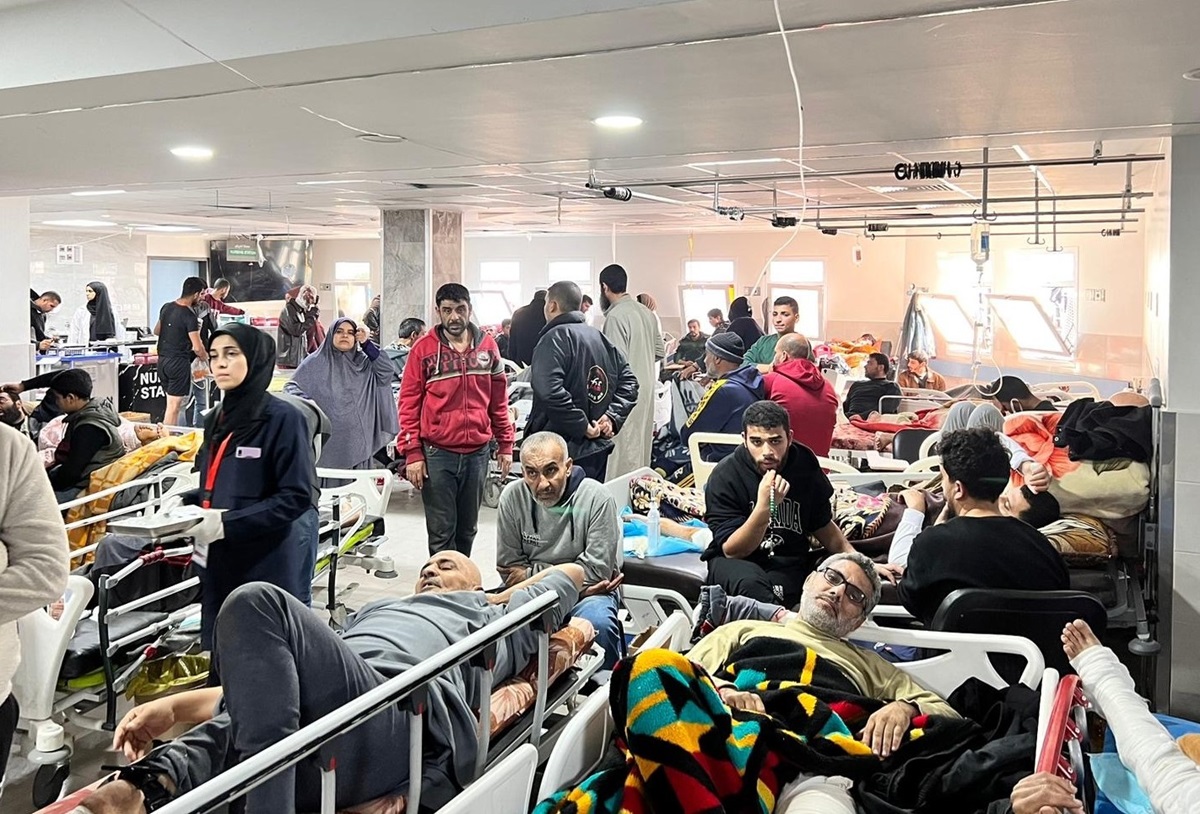A Washington Post analysis of publicly available material on al-Shifa Hospital in Gaza concluded that Israeli evidence “falls short” of proving that Hamas used the hospital as a command and control center—further putting into question one of the most infamous episodes of Israel’s 11-week war on Gaza.
The Washington Post published an analysis of “open-source visuals, satellite imagery, and all of the publicly released IDF materials” on 21 December.
“The evidence presented by the Israeli government falls short of showing that Hamas had been using the hospital as a command and control center,” the Post wrote. It then said that this lack of evidence “raises critical questions” by humanitarian and legal experts regarding the proportionality of Israel’s assault on al-Shifa.
The analysis concluded that the rooms connected to the underground tunnel network showed no “immediate evidence” of military use, that none of the five hospital buildings identified by Israel as directly involved in Hamas activity appeared to be connected to the tunnel network, and that there is no evidence that the tunnels could be accessed from inside hospital wards.
Israel raided al-Shifa Hospital on 15 November on the basis of it being a Hamas base of operations after bombing its surroundings for several days. The military arrested the hospital’s director, Muhammad Abu Salmiya, and released what it said was evidence of its claims, including videos from underground rooms and CCTV footage from 7 October of hostages being rushed into the hospital.
The US backed Israel’s assessment.
International media outlets visited the hospital, and CNN wrote in a report on 19 November that “analysis of separate footage published online by the IDF prior to visits from international media outlets suggests weaponry at Al-Shifa may have been rearranged.”
The World Health Organization’s report on the hospital’s conditions at the time of the raid deemed it ‘nearly a cemetery’ rather than a medical facility. Israel withdrew after it said it destroyed the underground tunnels.
The Security Council adopted a resolution on 22 December calling for unhindered access of aid into Gaza and the creation of conditions leading to a cessation of hostilities. The resolution’s original draft called for an immediate cessation of hostilities but was watered down through negotiations with the US to avoid a third veto.
With increasing pressure and scrutiny by the international community and popular demands for a ceasefire, a part of Israel’s—and the United States’—political legitimacy hinges upon it proving its claims regarding Hamas’ use of civilian infrastructure, as well as its adherence to its stated goals of recovering the remaining Israeli hostages taken on 7 October by Hamas and destroying the militant group.
Israel’s war on Gaza raises questions regarding its legality, as well as the war crimes, crimes against humanity, genocide, and the rising concept of ‘domicide’—the mass destruction of houses—possibly committed by Israel throughout the course of the war.
Hamas’ 7 October attacks also possibly constitute war crimes and crimes against humanity.
The International Criminal Court (ICC) is investigating both Israel and Hamas as part of its open investigation into crimes committed on Palestinian territory. Israel is not a member of the ICC.
THE CONFLICT SO FAR
After a surprise attack conducted on 7 October by Hamas on a number of southern Israeli towns which resulted in the deaths of an estimated 1,200 people and more than 220 being taken hostage by Hamas, Israel launched a retaliatory bombing campaign against what it describes as ‘terrorist targets’ in the Gaza Strip.
Over 20,000.Palestinians have been killed in the Gaza Strip — including nearly 8,000 children — and over 52286 others injured. Meanwhile, at least 259 Palestinians have been killed in the West Bank and at least 3,365 have been injured.
The priority of the Egyptian government since the beginning of the conflict has been de-escalation and the securing of a path for aid to enter the Gaza Strip through the Rafah crossing. Israel bombed the crossing at least six times, and limited aid trucks have crossed to Gaza so far, which UN officials warn is insufficient amid dire humanitarian conditions.
Most Western countries, with the United States at the forefront, have expressed unconditional support for Israel, despite the steadily rising death toll in Gaza. Meanwhile, the United Nations General Assembly has issued a resolution calling for a ceasefire.






Comment (1)
[…] post Washington Post Analysis Concludes Israeli Evidence of al-Shifa Misuse ‘Falls Short’ first appeared on Egyptian […]